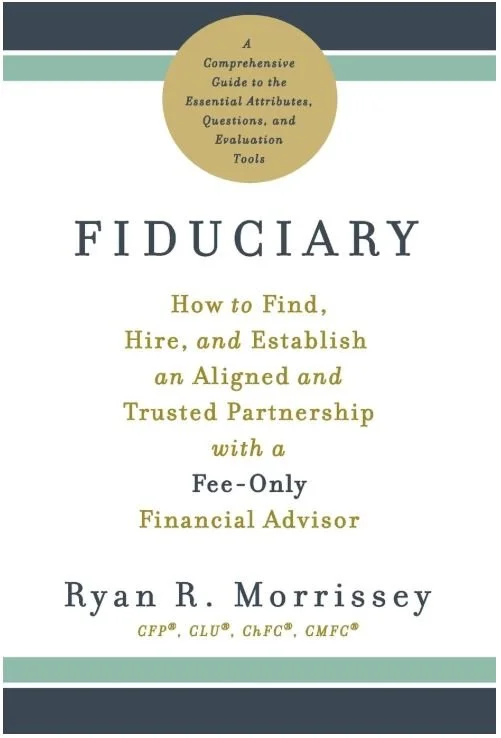Social Security Survivor and Spousal Benefits Demystified
This week, I’m diving into one of the most common topics I’m asked about: Social Security. Whether you’re years away from retirement or it’s right around the corner, understanding how Social Security works is critical for making informed financial decisions.
Let’s Talk Social Security
I've picked four listener questions from the past year that cover a wide range of Social Security scenarios. If you’ve wondered how benefits work for divorced spouses, survivors, or government employees, there’s something here for you.
Question #1: Can My Mom Receive Benefits from Her Ex-Husband?
From Andrea:
“Hi Ryan, quick question for you on behalf of my mother, Mary. My parents divorced in the 1990s. My father passed away in 2019, and his second wife received his benefits until she passed away nine months later. Is my mom eligible to receive his Social Security benefits?”
My Answer:
Thanks, Andrea! Sorry to hear about your father’s passing. There are a few key points here:
Length of Marriage: Your mom must have been married to your father for at least 10 years to qualify for an ex-spousal survivor benefit.
Age Requirements: She can claim as early as age 60 (or 50 if she’s disabled), but she’ll only get the full survivor benefit if she waits until her Full Retirement Age (FRA) — typically 67.
Remarriage Consideration: If your mom remarried after age 60, she may still be eligible for survivor benefits from your father.
Earnings Limit: If she starts collecting before FRA and continues working, she must stay under the $23,400 income threshold for 2025, or her benefits could be reduced.
To apply, she’ll need to call or visit a Social Security office — survivor benefits can’t be claimed online.
Question #2: Can I Choose My Ex’s Spousal Benefit Now and Switch Later?
From Stephanie:
“I’m 63 and divorced after more than 10 years of marriage. I was told I could take spousal benefits from my ex and switch to my own at 67. But the SSA told me I had to apply for my own benefit first. I’m confused!”
My Answer:
Totally understandable, Stephanie — Social Security rules can be tricky. Here's the deal:
Because your ex is still living, you cannot file a restricted application and choose which benefit to receive. You’ll only get the higher of either your own benefit or 50% of your ex-spouse’s benefit.
If your ex passes away, you could then file as a surviving ex-spouse and potentially switch later to your own higher benefit — that’s where a restricted application might apply.
Remember: Your own benefit increases by 8% per year between your FRA and age 70, so waiting could pay off.
Question #3: What Changed with the Social Security Fairness Act?
From AppalachianMountains6010 on YouTube:
“Since the WEP and GPO changes passed, the Social Security website says you can get survivor benefits if married 5–9 years. Is that true?”
My Answer:
Great question! The Social Security Fairness Act, passed in January 2025, repealed the Windfall Elimination Provision (WEP) and the Government Pension Offset (GPO) — major news for public sector retirees.
This change benefits teachers, firefighters, police, and federal employees who were previously penalized for receiving a non-Social Security pension.
However, I haven’t seen any official updates lowering the 10-year marriage requirement for ex-spousal survivor benefits. That requirement appears to remain firm — unless future legislation changes it. Still, it never hurts to confirm your specific eligibility with the SSA.
Shipped to your door!
Available on Amazon Marketplace (click the image)
Question #4: I’m 65, My Ex is 62 — Can I Claim on His Record?
From Donna Milligan on YouTube:
“I’m 65 and my ex is 62. Social Security told me I can’t collect benefits from him until he starts collecting. Is that true?”
My Answer:
Hi Donna! The answer depends on how long ago you divorced.
If it’s been more than two years, you should be able to claim benefits on your ex’s record, even if he hasn’t filed yet.
If it’s been less than two years, then yes, you do have to wait until your ex-spouse starts collecting for you to claim on his record.
Again, watch out for that earnings limit if you’re still working and not yet at your full retirement age.
And yes, Social Security reps sometimes get it wrong — if you think that might be the case, don’t hesitate to call again or visit in person for clarification.
Keep the Questions Coming!
I absolutely love hearing from you and answering your questions. Whether it’s Social Security, retirement planning, or how to find the right financial advisor, your feedback helps shape the content of this podcast and blog.
As always, have a great day, a better week, and I look forward to talking with you on the next blog post, podcast, YouTube video, or wherever we have the pleasure of connecting!
Written by Ryan Morrissey
Founder & CEO of Morrissey Wealth Management
Host of the Retire with Ryan Podcast




